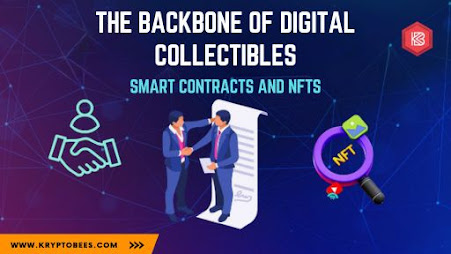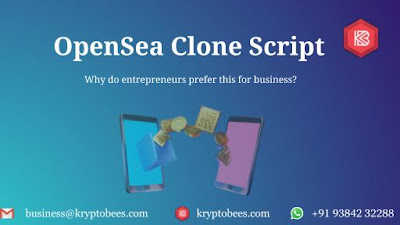Smart Contracts and NFTs: The Backbone of Digital Collectibles
In the rapidly evolving world of digital collectibles, one crucial technology stands out as the backbone of this revolution: Smart Contracts and NFTs. These two components are the driving force behind the creation, ownership, and trading of unique digital assets, and they are changing the way we perceive and interact with art, entertainment, and more.
Understanding the Basics: Smart Contracts and NFTs
Let's break it down in simple terms:
Smart Contracts:
Smart contracts are agreements that execute themselves based on established criteria and conditions.
They are run by blockchain technology, which assures transparency, security, and immutability.
Imagine a digital vending machine that automatically dispenses a product when you insert a specific coin. Smart contracts work similarly but in a digital, decentralized manner. Smart contract development is a necessary process to work with decentralized applications.
NFTs (Non-Fungible Tokens):
NFTs are a form of cryptocurrency token that indicates ownership of a unique item or piece of content.
NFTs, unlike cryptocurrencies such as Bitcoin or Ethereum, are not interchangeable.
Each one is distinct and cannot be exchanged on a one-to-one basis with another NFT.
NFTs can represent a wide range of digital or physical items, including art, music, videos, virtual real estate, and even tweets. You can approach the NFT marketplace to obtain these NFTs.
How Smart Contracts and NFTs Work Together
Smart contracts and NFTs are closely intertwined in the world of digital collectibles:
Creation of NFTs: When a digital artist or creator wants to tokenize their work, they use a smart contract to create NFTs. The contract defines the unique characteristics and ownership rules of the digital collectible.
Ownership and Provenance: Once an NFT is created, it is recorded on a blockchain. This ledger ensures the authenticity, provenance, and ownership history of the digital asset. Owners can easily prove the originality and rarity of their collectibles.
Trading and Marketplaces: NFTs can be purchased, sold, or traded on various of online platforms. These transactions are facilitated by smart contracts, which automatically execute when predefined conditions are met. This removes the need for intermediaries, which lowers costs and improves efficiency.
Royalties and Resales: Smart contracts can be programmed to automatically pay royalties to creators whenever their NFTs are resold. This ensures that artists continue to benefit from the increasing value of their work in the secondary market.
Why Smart Contracts and NFTs Matter to Entrepreneurs
New Business Opportunities: Entrepreneurs can explore a wide range of business opportunities in the NFT space, from creating NFT marketplaces to offering consulting services for artists and creators looking to tokenize their work.
Innovative Marketing and Engagement: NFTs offer unique ways to engage with customers and fans. Entrepreneurs can use NFTs for promotional campaigns, limited edition releases, and fan engagement strategies.
Artistic Collaboration: Many entrepreneurs are collaborating with artists and creators to tokenize their content, opening up new revenue streams and expanding the reach of digital art.
Investment and Collecting: NFTs have also become a form of investment, with collectors and investors buying and trading NFTs for potential financial gain. Entrepreneurs can create platforms and services catering to this growing market.
Conclusion:
Smart Contracts and NFTs have become the backbone of digital collectibles, transforming the way we create, buy, sell, and own digital assets. Entrepreneurs who understand and embrace this technology are well-positioned to seize opportunities in this exciting and rapidly evolving space. The fusion of creativity and blockchain technology is changing the future of art, entertainment, and beyond.




Comments
Post a Comment